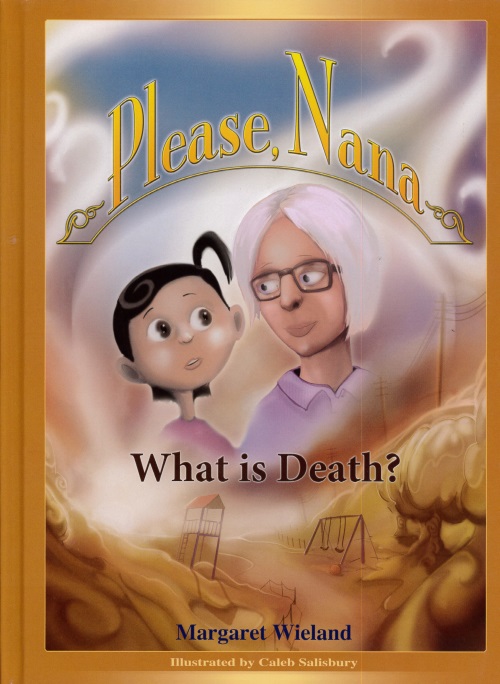Feedback archive → Feedback 2014
Meaning, and why does God allow suffering?

Kamanee N., Australia, wrote in with the question:
I am studying art at the moment and for example, what does an image mean? There is no true right or wrong answer. Meaning is constantly changing. There is no law that grantees one true meaning. Then every answer become equally plausible. How then do I say that there is a true meaning, an ascribed value given to us that is the same since the beginning of time? I am really stuck on this. Any help will really be appreciated.
Lita Sanders, CMI-US, replies:
Dear Kamanee,
Thanks for writing in. The question of meaning is an interesting one. When you look at a painting, it could mean one thing to the person who painted it, and a dozen people viewing it might have a dozen different interpretations of its meaning (especially if it is an abstract painting).
So I think that it is interesting that when God decided to communicate His truth to us, He did so via a medium that does have an unchanging meaning—language. We know that language can communicate meaning; for instance, I could read your question, and you can read my reply, and we know what the other was trying to communicate. Some people deny this, yet they write in language and assume that their readers know they’re writing a post-modern deconstruction of meaning, for example, rather than their grandmother’s sponge cake recipe (but if language did not communicate meaning, how would we tell one from another?).
So God communicated to us via a written medium, Scripture. And if His truth is really true, it must be unchanging, because real truth is eternal. There is an element of faith in believing the Bible is true, but there is good evidence that it is true. For instance, when it talks about historical events, we can compare it with archaeology and other evidence we have of the ancient world, and it’s true. We also feel the truth of its statements about human nature. We know that death is wrong, even though everyone dies and so it would seem to be natural. The Bible tells us why—God didn’t create us to die; we only began to die when Adam’s sin brought death into the world. It also tells us how to have a relationship with God—see some good verses to start with at https://creation.com/good-news.
N.D., Australia, writes:
Dear CMI,
I would like to thank you for your ministry. It has been a true blessing to me!
After reading the Death & Suffering Q&A, I didn’t feel any article addressed my question. In a scenario:
If I knew with absolute certainty that person A would be shot with a gun by person B, and I had a little button I could press that would make person B’s gun disappear into thin air, and I didn’t, it would be wrong of me, as I had foreknowledge and ability to remove the gun, but I didn’t.
In the same way, God, who has all power and knowledge and cannot sin, should be ‘obligated’ to stop person B shooting person A as it would be wrong to do otherwise.
In Dr Jonathan Sarfati’s brilliant article ‘Why would a loving God allow death and suffering’, one point in his ‘atheistic argument’ refutationstates:If God is morally perfect, then He has the desire to eliminate all evil—unless He has a good reason for allowing it.
Lita Sanders responds:
Dear N.,
Thanks for writing in. But why use a hypothetical example when there are so many real examples of horrific evil taking place in the world? Recently, a former youth pastor was convicted of molesting young boys and went unpunished for over 20 years. Where was God when that happened?
First, your analogy talks about human responsibility—but humans are responsible to God. God does not answer to anyone. Job questioned why God allowed terrible things to happen to him. The reader of the biblical book knows what was going on, but there’s no indication that Job ever did. But when God finally answered him, He did not explain, but showed Job that he was not in the place to question God.
God hates sin, and He promises to deal with it. However, as Dr Sarfati’s article points out, there is no basis for the claim “If God is morally perfect, then He has the desire to eliminate all evil immediately.” As explained, if He did so immediately, all of us would be immediately condemned, because all sin, even sins which hurt other people, are primarily against Him, and He will judge impartially. So if He judges the pedophiles now, He will judge adulterers and thieves and blasphemers and all sorts of people. All of us would be consumed in His wrath and no one would be saved. This would be absolutely just and righteous on God’s part, but because of His mercy He wants to save sinners. That means that He puts off judgment.
In the meantime, that means that people will be hurt by sin. God set up human institutions like government and courts to minimize evil and judge it on an earthly level with prisons and the death penalty (Romans 13). They don’t always work like they should, and sometimes they perpetrate their own form of evil. But overall, they do serve to minimize evil because they help to remove the evildoer from society, as well as act as a deterrent against others (Deuteronomy 17:12–13). The former pastor who abused those boys will rightfully spend the rest of his life in jail, and unless he repents and trusts Christ for the forgiveness of his sins, he will be eternally judged.
But what about the ostensibly innocent people who are harmed by sins that God could have prevented? Well, some of them are God-haters who want nothing to do with Him. Is He obligated to protect people who hate and blaspheme Him, and break His laws? And all of us, including Christians, are guilty of sin against the supremely holy God. Believers recognize that when we suffer evil in this life that God has saved us from an eternal fate that is much worse than anything we could suffer in this world—we are simply called to persevere through this life.
But what I don’t think you really understood in the article was his point that “A good, omnipotent God would stop evil unless He had a good reason for allowing it.” And He does have a good reason. Sometimes it is judgment for sin. But I think far more often pain and suffering is a reminder that something is wrong in the world. If we never experienced bad things, we might never realize our need for God. We might not understand that we need to be saved.





Readers’ comments
Comments are automatically closed 14 days after publication.